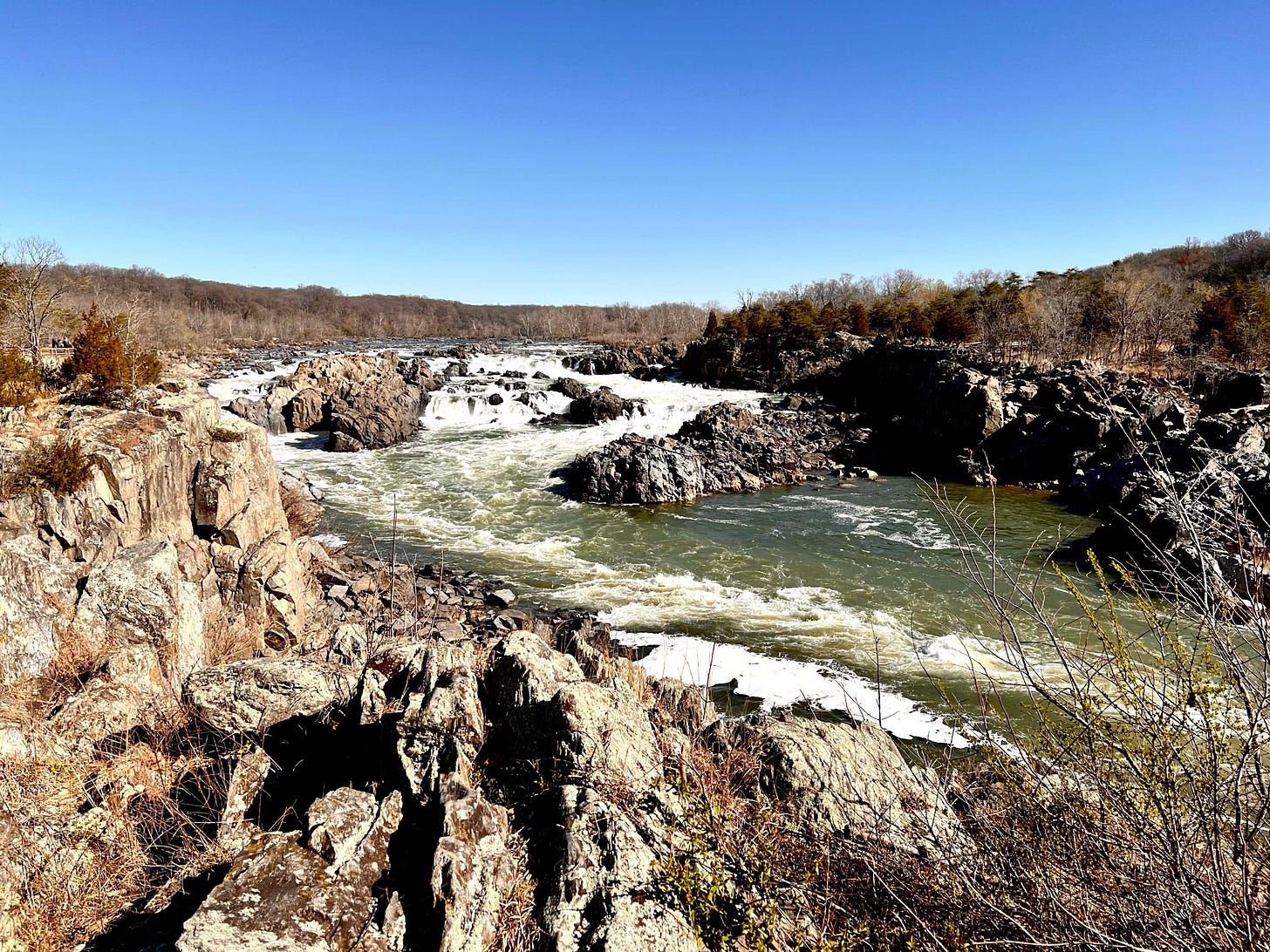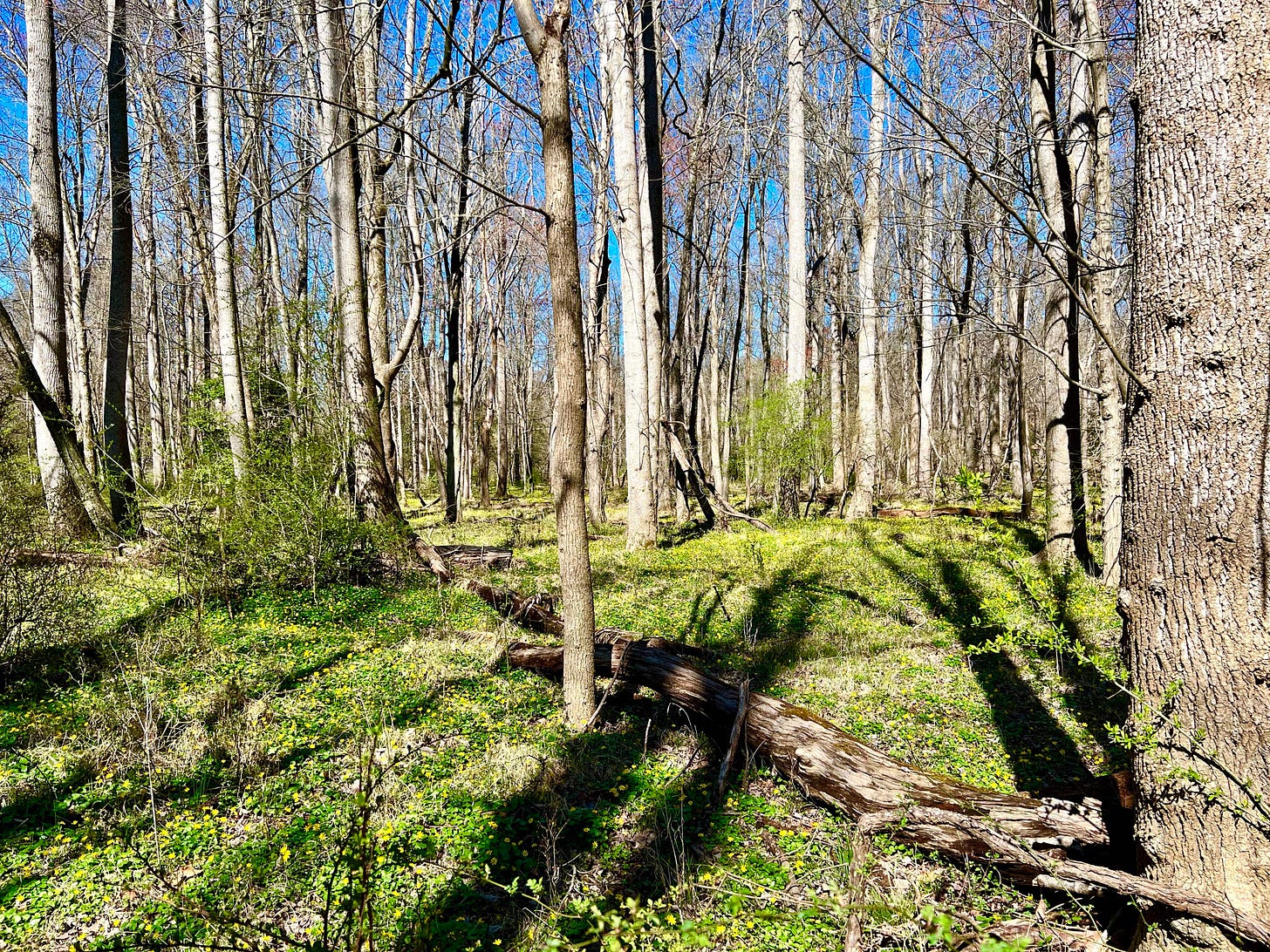It's been a while...
And a lot has transpired. Reflections on transition.
The last time I wrote was in January, at the beginning of the year, about my new year reflections (and I attached a handy spreadsheet template to lend a hand throughout this process). Since January, and especially through March, my life has been filled with transitions. Turning 33. Moving to a new city, leaving Los Angeles, where I’ve spent about 90% of my life. In between moving out of our house in LA and embarking on a wild two-day journey with Tabor across the country (he has now stepped paw in California, Colorado, Texas, Florida, New York, New Jersey, and DC…if you’re curious about this route, reply to me), I stayed in the house where I grew up. I so appreciated having more concentrated quality time with my parents before I moved across the country. Their house feels peaceful and allows me to engage and sit with myself. It is, after all, where I dove deep into my psyche and performed a whole host of witchy rituals during my time off in 2020.
During my in-between-moves-time at their house, I decided to complete a half-day meditation retreat led by my favorites, Jack Kornfield and Tara Brach (who apparently lives in the northern VA area, and who I am determined to meet in person now that I live nearby). Unsurprisingly, during this retreat, I reflected upon transition.
What is NOT a transition? If time continues, life moves forward, are we not constantly transitioning?
We define certain times in our lives as transitions — birth, death, marriage, divorce, moving, career changes, the beginning and end of seasons, the beginning and end of anything, really. Any state shift. What would happen if we approached transitions as if they were constant? Time never stops, the beginning of one hour marks the end of the last hour, and the beginning of one minute marks the end of the last minute. Does evolution prevent us from understanding transition as constant since the emotional waves of transitions, as we understand them now, feel too intense to experience daily? Or would we feel less afraid of change (a necessary precursor to transition) if we more fully accepted that change is constant? Does this run contrary to our natural human desire to feel “settled”? And is it possible to feel settled in change itself? Perhaps it can be analogized to feeling at home with certain people even if your physical home continues to shift. Now, I’m not advocating for letting go of rituals that mark transitions or recognizing the biggest changes as what they are — there is no denying that birth, death, career change, etc. feel different than the shift from the average Tuesday to Wednesday. But would our capacity to handle change increase if we brought some of the defining characteristics of the biggest changes into daily life? Would we then more easily approach the giant transitions with equanimity?
In a recent post from Susan Cain (another favorite / can I be like her when I grow up?), she writes, “Endings will give way to beginnings just as much as beginnings give way to endings.” It is during the biggest transitions that we are most likely to experience transcendence, meaning, and deep connection.
She writes:
In psychometric surveys, Yaden and his colleagues have asked people to think and write about their intense spiritual experiences, and then to answer questions about them. This allowed the researchers to sort the experiences into various types. Did they feature a sense of Unity? God? A Voice or Vision? Synchronicity? Awe? After classifying the experiences, the researchers asked what triggered them. And of a very long list, they found two items that consistently appeared as major triggers: "Transitional period of life”– and "Being close to death.”
This research echoes the work of the famous UC Davis creativity researcher, Dean Keith Simonton, who found that creativity seems to move in a spiritual direction during midlife and beyond, as artists straddle the intersection between life and death. Simonton studied 81 Shakespearean and Athenian plays and concluded that their themes grew more religious, spiritual and mystical as the playwrights aged. He also studied classical composers, and found that musicologists rated their later works as “more profound.”
Our transitions are opportunities where we can connect with the people who matter most. Ourselves, our families, partners, close friends. My transition to DC came with emotional conversations with my family that left me feeling vulnerable and raw, but ultimately more connected in an authentic way. And my transition was the spark to these conversations — a transition for my family as well since they are used to having me close by. Going forward, recognizing that constants are illusory, perhaps it will be easier to bring deep connection through vulnerability during the average day without needing the spark of a major life change.
As I near the end of this one transition, I mark its significance with a pause to reflect on how it may have shaped me. My new perspective on the constance of transition causes me to notice how frequently our states shift throughout the day, something very human. This perspective also increases my appreciation for the transitions we categorize as “major” and more intentionally open myself up to potential transcendence.
I invite you to reflect on:
What period of transition are you in right now?
How might your perspective shift if you accept change is constant?
When have you felt transition lead to deeper connection? With who?
What does equanimity feel like for you? How would the major transitions feel with more equanimity?







